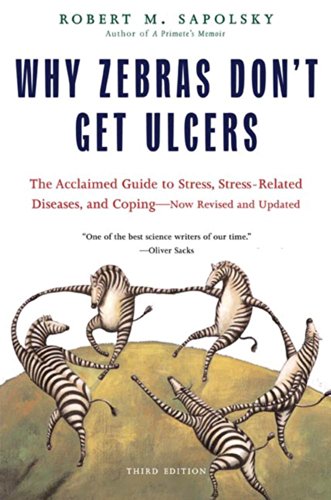vivi reviewed Why Zebras Don't Get Ulcers by Robert M. Sapolsky
Informative, if occasionally flippant
3 stars
It was interesting to learn more about the science of stress. I found that Sapolsky did a good job of summarizing the complicated systems involved in our bodies when we are subjected to stress, and what experiments and studies can say about how those responses affect our health.
He also effectively expressed how the field has changed throughout scientific history and how it remains very primitive, with many aspects that remain elusive.
Despite the fact that the content should have been quite dry, his writing style presented it in a way that was more digestible.
I found that a few of his examples felt a bit insensitive as he brings up serious issues such as domestic abuse that could be traumatic to people without warning, using them as 'exaggerated examples' in an attempt to inject humor into his writing.
But besides those instances, he is mostly cautious with his words and attempts to be inclusive and recognize his privilege.
The penultimate chapter stands out to me. In this chapter, he brings up all the reasons why our current society is fundamentally broken when it comes to managing stress, even if systems such as socialist healthcare and other liberal policies were to be enacted. In his criticism of the current system, he falls just short of advocating for a revolution, but understandably leaves these sorts of recommendations to those with more experience in that field.
Don't dive into this book expecting it to be a self-help book or a guide on how to manage stress. Certainly there are a few suggestions in the last chapter of the book, but the real core of the book is in its description of the mechanics and causes of our stress responses and ways in which scientists have studied them.
And another content warning, the book also frequently describes what I would consider somewhat cruel lab experiments done with rats and monkeys. Such experiments don't really align with my morality so at times it was hard to stomach the fact that so many of these experiments are done.

